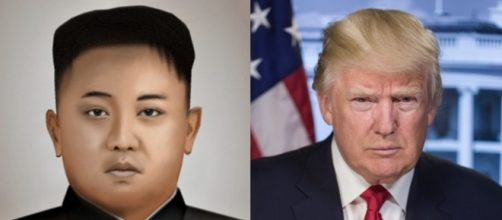With the decades-long yet still-fragile peace between North and South Korea again showing new signs of strain, U.S. and Chinese leaders are working hard to maintain the balance that has kept the peninsula relatively conflict-free since the Korean War ended in 1953. But the work of international diplomats has a special urgency this time -- North Korea has added nuclear weapons to its arsenal and has not been shy about showing them off.
Whether that translates to a willingness to use that weaponry in the event of war is not known, at least not known by the United States.
With the help of China, North Korea's primary benefactor for decades, diplomats from the U.S. and also from nearby Japan are trying hard not to find out.
Threatening rhetoric
North Korea's mercurial leader, Kim Jong Un, doesn't help matters, since it's difficult to tell what he cares about besides threatening the U.S. and killing his political rivals. With 40,000 U.S. servicemen and women on the front lines in South Korea, war would likely be devastating to all sides.
Analysts interviewed by CNN say the situation has gotten so tense that war could break out over a small misunderstanding, even without a major provocation. North Korea has been conducting live-fire artillery drills in response to South Korea holding military maneuvers with U.S.
forces.
"The real question now is somebody going to make a stupid mistake, because some kind of minor escalation could get out of hand," Bruce Bennett, a senior defense analyst at the RAND Corp., told CNN. "It is a dangerous situation that could get out of hand," he said.
Preparations for war
South Korea held evacuation exercises last year and Japan conducted them last month, a sure sign of rising tensions and uncertainty over the unpredictability of Kim and of new U.S. President Donald J. Trump, who has contributed to the dangerous rhetoric with his own threats against Pyonyang and has moved additional warships to the area.
"(North Korea) believes the only way to deter the U.S. from attacking them, and maintaining the power of the Kim regime, is by the possession of nuclear weapons," Joe Bermudez, an analyst with the monitoring group 38 North told CNN.
But other experts believe the posture of U.S. forces indicates that war is not imminent, at least from the U.S. side. Carl Schuster, former director of the U.S. Pacific Command's Joint Intelligence Center, told CNN that if was, the forces would be placed on a higher readiness level that probably would be announced publicly.
Escalating rhetoric
But the escalating rhetoric from the Trump government -- the president and members of his cabinet have said "the era of strategic patience is over" and "all options are on the table" regarding North Korea" -- have left a lot of questions that only Trump and Kim are likely able to resolve.
The North Korean state has not collapsed despite U.S. pressure, even though its economy is in terrible shape and the country depends on food aid from the U.S.
and China to survive the winter, and its military is growing in strength. .
For now, Trump appears to be content to allow China to try to de-famg North Korea, since it is in Beijing's interest to keep a buffer between U.S.-armed South Korea and the Chinese border. If North Korea gets so belligerent that the U.S. decides to take it out, that buffer would be eliminated.
And what would happen then? "We really don't know because we really don't know what Trump is prepared to do," Bennett told CNN.

